Part 2: The Horse’s Development – Why Maintenance Matters
Horse training isn’t a one-and-done process. Without consistent support and proper schooling, even a well-educated horse will begin to lose precision, strength, and clarity in their work. Muscles weaken, bad habits creep in, and the horse’s confidence can erode if they’re unsure of what’s being asked.
A trained horse needs ongoing education to stay at their level—and a developing horse needs even more support to get there. Horses don’t generalize well; a skill taught in one context must be reinforced in many others before it becomes reliable. And they’re always changing—physically and mentally. What worked last month may need adjusting today.
Examples of how horses can regress without guidance:
- A horse previously soft in the bridle may begin bracing if the rider’s hands become unsteady or inconsistent.
- A once-forward horse may lose motivation or develop sourness if exercises become repetitive or confusing.
- A young horse in development can become defensive or shut down if asked too much too soon, or without clear leadership.
Being in a structured program keeps the horse engaged, fit, and mentally balanced. Regular check-ins with a trainer ensure small issues are addressed before they become bigger problems. It also helps the rider better understand their horse’s needs and build a consistent communication system.
Most importantly, training is about longevity. A horse that’s physically fit and mentally confident will stay sounder and happier longer. Whether you’re working toward competition or simply want a trustworthy trail companion, proper, ongoing training is a commitment to the horse’s well-being.

